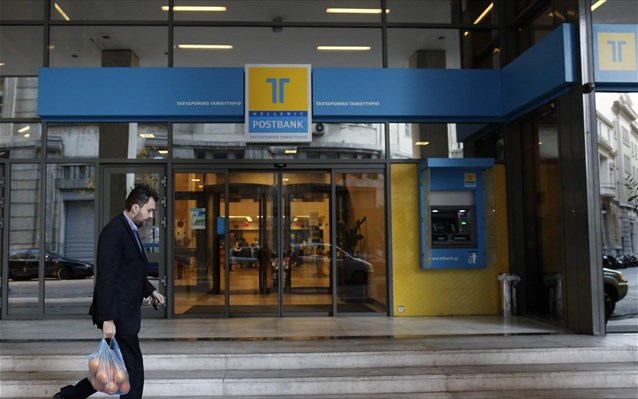Photo: naftemporiki.gr
Upon assuming office, the new head of Eurobank Christos Megalou turned in a letter to the bank's employees. In it he points out that the independent development of the bank is predetermined. "Our common goal is for Eurobank to independently and dynamically participate, as one of the four major players, in the strategic restructuring of the Greek banking system and to return to the private sector as quickly as possible," he states in the letter. He stresses that the Financial Stability Fund has also emphasised this at the general meeting of the shareholders of the bank, by stating, "Eurobank will remain administratively independent and will have the full support of its main shareholder in order for it to be able to return to the private sector as soon as possible." As to the private nature of the bank, Megalou stresses that it is the DNA of the bank, adding that all should work in this direction in the upcoming period in order to complete the business plan to attract private capital. Christos Megalou also notes the need for the bank to focus on the customers and that the goal is for the bank to return to the top to continue its 22 years of operation.
Meanwhile, the next stage of the restructuring of the banking system has started and after the completion of the recapitalization of the "good" banks, it is the turn of Post Bank and Proton Bank. As for Eurobank, it will be officially involved since Christos Megalou has put an end to the scenarios for the "unfreezing" of the merger with the National Bank of Greece.

It is considered that three of the four "good" banks, namely the National Bank of Greece, Alpha Bank, and Eurobank are really interested in Post Bank. In the first phase, the interested parties will be invited to acquaint themselves with the economic data in order to be able to submit offers at a later stage. The goal is to complete the sale by the end of July.
Alpha Bank, which has been preparing itself for the deal for a long time, has declared significant interest as well as the National Bank of Greece. Christos Megalou of Eurobank has also announced that the bank will dynamically participate in the restructuring of the banking system.
The Financial Stability Fund is examining through Goldman Sachs, which is its economic adviser, any possible interest from abroad but the main interested party is the Greek market, as the new Post Bank can secure a serious advantage. After the reduction of the bank's staff, it is "clean" and has deposits amounting to 11 billion euro and total assets of 13.7 billion euro. The programme of voluntary termination of service which applies to 700 employees will end on 4 July and according to the information, many employees are interested in it.
The sale of the new Proton Bank will be completed by the end of July under the same programme and it is expected that, initially, only Eurobank will declare its interest in the deal. The consultant to the Financial Stability Fund in this case will be Rothschild. The bank has deposits amounting to 1 billion euro.
The sale of the two banks that are under the full control of the Financial Stability Fund, which will bring revenue to the treasury, is one of the Troika’s requirements that are laid down in the Memorandum for financial support. The new privatization of Eurobank will take place within this framework and through attraction of strategic investors by October.